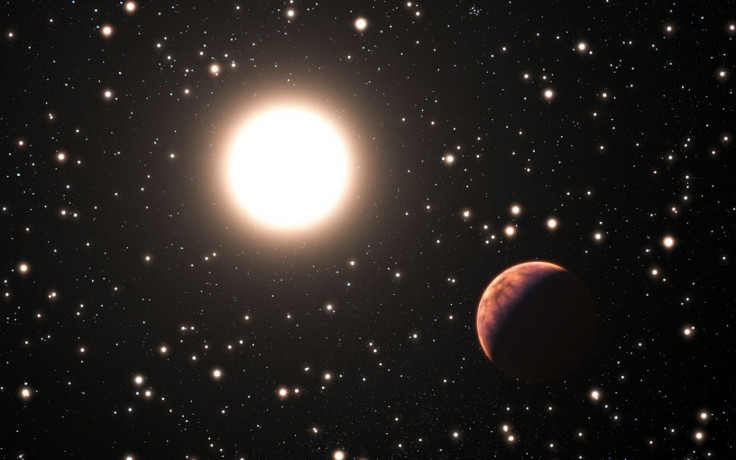Unique Exoplanet Orbiting Sun's Twin Discovered 2,500 Light Years Away

A first-of-its-kind alien world has been discovered 2,500 light years away in the star cluster Messier 67.
The exoplanet, spotted using the European Southern Observatory Harps planet hunter in Chile, is the only planet ever discovered orbiting a star almost identical to our own sun – so much so that the astronomers have dubbed it the 'Sun's twin'.
Although over a thousand exoplanets have now been discovered, very few have been found in star clusters like Messier 67. Astronomers from the Max Planck Institute for Extraterrestrial Physics, Germany, say this is odd as most stars are born inside star clusters.
Anna Brucalassi, lead author of the study, was looking to work out why this is the case: "In the Messier 67 star cluster the stars are all about the same age and composition as the Sun. This makes it a perfect laboratory to study how many planets form in such a crowded environment, and whether they form mostly around more massive or less massive stars."
The team monitored 88 stars over six years looking for tiny motions that reveal the presence of orbiting planets. In total, there are around 500 stars inside Messier 67.
Three planets were discovered. One was orbiting a massive red star, while the other two were orbiting stars similar to the Sun. The latter planets have a mass about the third of Jupiter and orbit their stars in seven and five days respectively.
They are known as "hot Jupiters" because they are comparable to the planet but are much hotter. One of the two planets identified was of particular interest because of its similarity to the Sun.
Study co-author Luca Pasquini said: "These new results show that planets in open star clusters are about as common as they are around isolated stars – but they are not easy to detect.
"The new results are in contrast to earlier work that failed to find cluster planets, but agrees with some other more recent observations. We are continuing to observe this cluster to find how stars with and without planets differ in mass and chemical makeup."
© Copyright IBTimes 2025. All rights reserved.






















